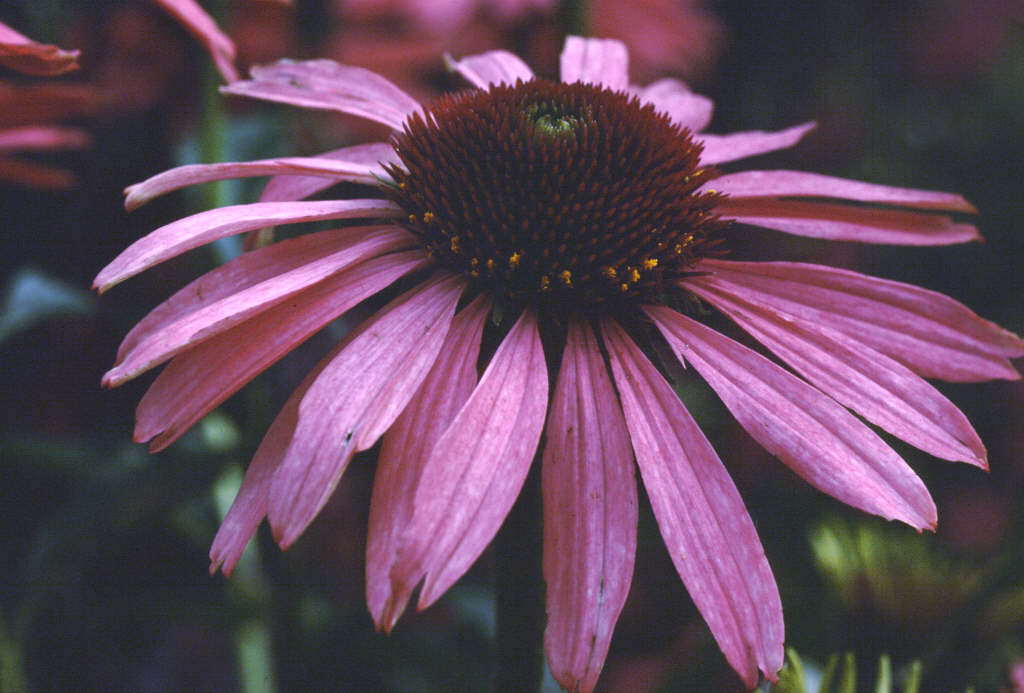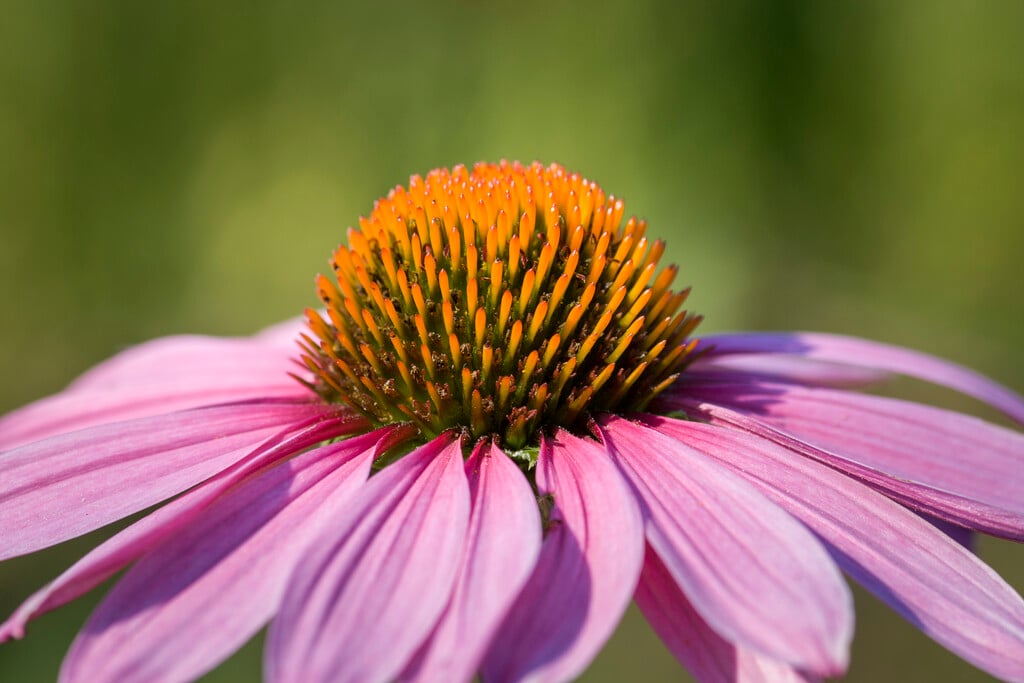Echinacea purpurea
purple coneflower
Upright perennial to about 1.5m tall, with coarsely hairy, lance-shaped mid-green basal leaves to 15cm long, and solitary flowerheads to 12cm across with slightly reflexed, light purplish-pink rays and a golden brown central disk, from midsummer to autumn; native to prairies and woods of eastern USA
Other common names
black samsoneastern purple coneflower
see morehedgehog coneflower
purple daisy
purple rudbeckia
Synonyms
Rudbeckia purpureaRudbeckia echinacea purpurea
Size
Ultimate height
1–1.5 metresTime to ultimate height
2–5 yearsUltimate spread
0.1–0.5 metresGrowing conditions
Moisture
Well–drainedpH
Acid, Alkaline, NeutralColour & scent
| Stem | Flower | Foliage | Fruit | |
| Spring | Green | |||
|---|---|---|---|---|
| Summer | Purple Pink | Green | ||
| Autumn | Purple Pink | Green | ||
| Winter |
Position
- Full sun
- Partial shade
Aspect
South–facing or West–facing or East–facing
Exposure
Exposed or Sheltered Hardiness
H5Botanical details
- Family
- Asteraceae
- Native to GB / Ireland
- No
- Foliage
- Deciduous
- Habit
- Clump forming
- Genus
Echinacea are erect, clump-forming rhizomatous perennials with simple or pinnately lobed leaves and solitary, long-stalked daisies with prominent conical central disks and often drooping ray florets; attractive to butterflies
- Name status
Correct
- Plant range
- C&E North America
How to grow
Cultivation
Grow in deep, well-drained, humus-rich soil ideally in full sun, although toleratant of some shade, see echinacea cultivation for further advice
Propagation
Propagate by division in spring or autumn or by root cuttings from late autumn to early winter
Suggested planting locations and garden types
- City and courtyard gardens
- Coastal
- Cottage and informal garden
- Prairie planting
- Wildflower meadow
- Wildlife gardens
- Cut flowers
- Flower borders and beds
Pruning
Cut back stems as the blooms fade to encourage further flower production
Pests
Generally pest-free
Diseases
Generally disease-free
Love gardening
Sign up to receive regular gardening tips, inspiration, offers and more
View our Privacy Policy
Get involved
The Royal Horticultural Society is the UK’s leading gardening charity. We aim to enrich everyone’s life through plants, and make the UK a greener and more beautiful place.

